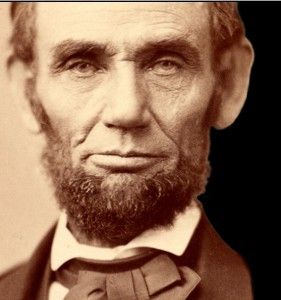 This month the Baptist Convention of Massachusetts joins the chorus of Northern Baptist organizations praising U.S. President Abraham Lincoln for issuing the Preliminary Emancipation Proclamation, while seeking God’s favor on behalf of the United States in the war with the Southern Confederacy.
This month the Baptist Convention of Massachusetts joins the chorus of Northern Baptist organizations praising U.S. President Abraham Lincoln for issuing the Preliminary Emancipation Proclamation, while seeking God’s favor on behalf of the United States in the war with the Southern Confederacy.
Resolved, That, in the present terrible national crisis in which we are involved by the unreasonable and wicked insurrection of disloyal men in the interest of a stupendous system of oppression, we hail with pleasure the proclamation of the President of the United States in favor of emancipation, and the acts of harmony therewith, as a favorable indication of Divine Providence and as an important instrumentality for the suppression of the rebellion.
Resolved, That in the fearful and wide-spread conflict now raging in our land we regard the interests of civil and religious liberty throughout the world for future ages as deeply involved, and therefore regard it as the solemn duty of every man to sustain the Government to the whole extent of his ability.
Resolved, That, for the speedy and complete suppression of the rebellion, we deem it eminently important that the loyal portion of the nation, holding in abeyance all minor issues, should remain united and present an unbroken front against the insurgents, and should therefore put forth all their energies to prevent any division of the people in the loyal States which shall weaken their support of the President in the execution of his avowed policy.
Resolved, That whilst we mourn over our individual and national sins, and acknowledge the justice of Almighty God in the severe affliction which has befallen us, we also recognize his Divine sovereignty, that as the race is not to the swift, nor the battle to the strong, so deliverance from our present troubles can be effected only through his mighty and beneficent agency, for which it becomes us to offer earnest and persevering prayer.’
Resolved, That a copy of these resolutions, signed by the President and Secretary of this Convention, be forwarded to the President of the United States as expressive of our approval of his policy in the prosecution of the war, and as a pledge of our sympathy, prayers, and cooperation with him in his arduous efforts to restore the Union and bring back to us national peace and prosperity.
Source: B. F. Morris, Christian Life and Character of the Civil Institutions of the United States, Developed in the Official and Historical Annals of the Republic, Philadelphia, George W. Childs, 1864, pp. 748-749 (link)


